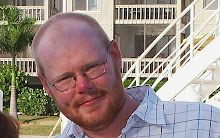http://sites.google.com/a/mail.montclair.edu/think-education-think-life/Home/community-inquiry-project/results
Discussions with past and current students yielded a variety of opinions as it pertains to the value of standardized tests. A majority of the students interviewed didn’t have a clear definition of what a standardized test was but was knowledgeable about the existence of such a test. Some students especially in the middle school, regarded school as something they had to do until they were 16 yrs old and had no control over that. As such, they did not have an opinion as to whether what they were learning in school was important to their future life or just a means to an end. While some students (about 25% of those interviewed) thought that the standardized test were helpful in their efforts to get good grades and ultimately shape a career, the majority (about 75%) thought that standardized test only serve to limit the amount of knowledge they can acquire during their elementary and high school years. Most of the students contend that their teachers teach to the tests and find very little time to help students in developing social or life skills. This was in keeping with the notion put forward by Madus (1988) that tests are losing their legitimacy on evaluating students on their learned knowledge due to the “teaching of the test.” This corrupts the information that the students have learned and therefore know because instead of retrieving the information from long-term memory, they are memorizing test material and format. Additionally, some find that the lessons are usually scripted with very little room for impromptu modifications on the part of the teacher or students. School was also referred to as boring and useless by many of the students interviewed. The administrators spoken to were generally of the view that the standardized tests are not the quick fix to the numerous problems being encountered in the NPS system. One contends that the standardized test system is “what we have now and what we have to work with”. A discussion ensued about the need for alternatives to the much dreaded standardized test and some of those already being tried out in districts outside Newark. Some of those alternatives have included criterion-referenced tests, teacher-made tests, contract grading, interviews with students and their parents, and detailed documentation of a student's accomplishments (Wildemuth, 1984). Other administrators were a bit more blunt in their criticisms of the current situation and expressed that the current curriculum “focuses too much on subject content and leaves little time to engage in the overall development of the students”. The curriculum was seen as being “too tightly fit into the 180 teaching days which exists in the NPS System – resulting in some teachers being unable to complete the curriculum content”.
The teachers spoken to were equally critical as their students in condemning the current educational system and curriculum taught in schools. One recurring theme was the notion that the curriculum in use in schools in the Newark Public Schools does not include any aspect that deals with nurturing interpersonal skills or promoting other skills which should go hand in hand with education in the various subject areas. The curriculum was regarded as being one that does not teach or encourage students to think critically, be innovative or develop new ideas. Students who are able to think critically are able to solve problems effectively. Having knowledge is simply not enough in today’s world. To be effective in the work place and in personal lives, students must be able to solve problems and make effective decisions; they must be able to think critically (Synder and Snyder, 2008). There were suggestions to modify the current curriculum to address those deficiencies and aim to produce wholly developed individuals rather than book smart or content savvy individuals. The general impression from the respondents was that the current curriculum is failing the students and isn’t geared towards personal development. Students need to learn more about the world, think outside of the box, become smarter about new sources of information, develop good people skills and redefine how they learn. The curriculum needs to be adjusted to incorporate a balance between core knowledge and portable skills such as critical thinking, making connections between ideas and knowing how to learn (Wallis and Steptoe, 2006). Information technology was regarded as one of the areas that needed more attention and greater inclusion in the district’s curriculum.
Sunday, May 10, 2009
Subscribe to:
Post Comments (Atom)

No comments:
Post a Comment